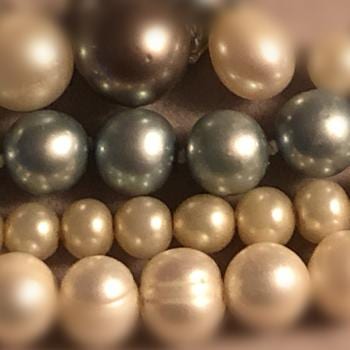This Sunday will be the last in the message series I’ve been giving on “The Lost Ones:”–the reasons many of our older teens and young adults leave the church in droves.
We started by looking the problem of the shallow theology we feed them, and by so doing, leave them unprepared to face real world problems with no simple answers. We examined the nature of the conflict between church and science and the misreading of Scripture that often leads to that conflict. We touched on the very complex sexual landscape these young people face and asked what we could do to help them build a more adequate theology of sexuality.
This Sunday, I will look at the issue of living with our doubts, and what happens when we don’t make room for them.
So I ask, where would we be without doubts? Well, my last name wouldn’t be nearly so recognizable, for the otherwise obscure disciple of Jesus named “Thomas” only became famous because he doubted the resurrection.
Still, the church has a reputation as a place where no doubts were permitted. As they say, “The Bible says it, I believe it, that settles it for me.” Nice, neat, simple–and a recipe for cognitive dissonance.
I’ve recently become peripherally involved with a blog called “Ask Mormon Girl” where the author brought up the question of polygyny (one man, multiple wives) and its centrality to Mormon practice. I read with fascination how the many responders to her post sought to put together the various doctrines, quotes and verses from the Bible and the Book of Mormon. Many showed a repugnance at the idea that plural marriages will be the norm in what they term the “Celestial Kingdom.”
I’ll not comment on my thoughts on the Mormon doctrine, but what I saw here is exactly what I, and many others, have done. We’ve tried to do with the Bible and the idea that it’s all clear and understandable and accessible in there. All I have to do is just believe it.
It doesn’t work. I’ll quote one of my favorite sections in the Bible, found in Deuteronomy 21. “When a man has a stubborn son, a real rebel who won’t do a thing his mother and father tell him, and even though they discipline him he still won’t obey, his father and mother shall forcibly bring him before the leaders at the city gate and say to the city fathers, ‘This son of ours is a stubborn rebel; he won’t listen to a thing we say. He’s a glutton and a drunk.’ Then all the men of the town are to throw rocks at him until he’s dead. You will have purged the evil pollution from among you. All Israel will hear what’s happened and be in awe.”
There’s more fascinating stuff in the chapter–read it for yourself. And then say, “The Bible says it, I believe it, that settles it for me.” Really?
Lest someone misunderstand me, let me make this clear: I honor and respect the Bible as the revelation of God, written by human hands, through the lenses of eyes and minds in a particular time and place. I see these words as doors open with invitation to discover as much as the human mind can comprehend of the mystery and awe of the God of the cosmos who holds all creation in love, grace and redemptive hope.
I also believe that the name and reputation of The Holy One is systematically defamed by those who think they have discovered the only correct words to use. I live in doubt and questions. It’s a good, if somewhat unsettling, place to be. Some call it the “luminal space,” an in-between time that often characterizes the move from certainty to rich maturity and acceptance of ambiguity.
Doubting and asking questions lead to greater insights. We would have very little of what are now routine parts of our lives without it. For example, many held that the “Bible says it” dictated that women receive no pain relief when delivering babies. Of course, no equivalent restrictions were applied against men using labor saving devices, although that, too, violates the same passage in Genesis 3 saying that man must labor by the sweat of his brow.
Without doubts about unalterable “truths,” we would have no air travel, no modern medicines, and would still find enslavement of one human being by another an acceptable practice.
Some doubts can be set down and put away forever. Some will hang around for years or even a lifetime at the edges of your mind, dancing in and out depending on life’s circumstances. Others might transform the world. But you’ll never know unless you look at them openly and honestly.
So celebrate those doubts! Bring them to the light of day. Examine them and see what they say about you, your decisions about God, and the world around you.
Your world will be larger when you do.
















